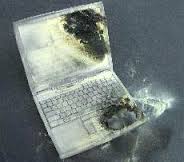|
Can't find What You Want? Try Google... |
|
Can't find what you want? Try Google |
|
Google Search |
| Home | Site Contents |
Site Contents for Secrets of International Trade |
|
|
Hazards of Export Packing & Shipping IATA Dangerous Air Cargo Goods (HAZMAT) Ban
IATA
Update
Shipping guidelines for
air
cargo transportation of
Lithium metal batteries
Lithium metal batteries transported as cargo are restricted to Cargo Aircraft since 1 January 2015. The prohibition on the carriage on passenger aircraft only applies to lithium metal batteries when shipped by themselves. Check the Lithium battery update for 2015 (pdf) To assist shippers in understanding the complete requirements related to the transport of lithium batteries, including packing instructions, IATA has prepared the Lithium Battery Shipping Guidelines (LBSG).
NEW! The Lithium Batteries Risk Mitigation Guidance for
Operators (pdf) outlines strategies to reduce the risks
associated with lithium batteries transportation by air.
Intended for airlines, it was developed with input of leading
industry groups specialized in the handling of dangerous goods
and lithium batteries. The document is copyright-free, allowing
download and onward distribution to interested users. |
Page 1/7 - Hazards of Export Packing & Shipping Page 2/7 - "...such goods would be the first to be 'thrown overboard or jettisoned." Page 3/7 - "A 'serious offence' and against 'air regulation' for shipping 'liquid or pressurize products' without first informing the airline..." Page 4/7 - "The exporter, must ensure that the goods being shipped have the required 'marks of origin'." Page 5/7 - International Air Transport Association Shipping guidelines. What are dangerous goods (HAZMAT)? <<This Page 6/7 - IATA Air Cargo Shipping guidelines for Lithium metal batteries transportation. |
|
|
The rechargeable batteries are used in cell-phones, laptop computers, power tools and many other electronic devices. They are also often shipped as cargo on international airline flights.
The halon fire
suppression systems in the cargo compartments of airliners have been
shown to be ineffective against battery fires. The systems have been able to
put out the initial flames from overheated batteries, but are unable to stop
the batteries from continuing to overheat and reigniting. Many electronics
manufacturers also prefer to receive batteries quickly by air, rather
than more slowly by ship, so that they can avoid having to keep large
supplies on hand. If the group cannot
come up with such packaging, aviation officials have said it's likely
that a formal proposal to ban bulk battery shipments from passenger planes
will be offered at an ICAO meeting on dangerous cargo in October. |
|
|
|
|
The
FAA is precluded by a law Congress passed in 2012 from issuing
any regulations related to the transport of lithium batteries unless the
international organisation acts first.
Next Page 7/7 - UN agency
bans e-cigarettes on airline
flights. The U.S. Federal Aviation Administration is now warning airlines about
the fire risk from e-cigarettes.
|
|
|
Can't find What You Want? Try Google... |
|
Can't find what you want? Try Google |
|
Google Search |
|
|





